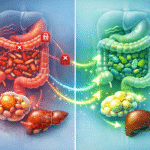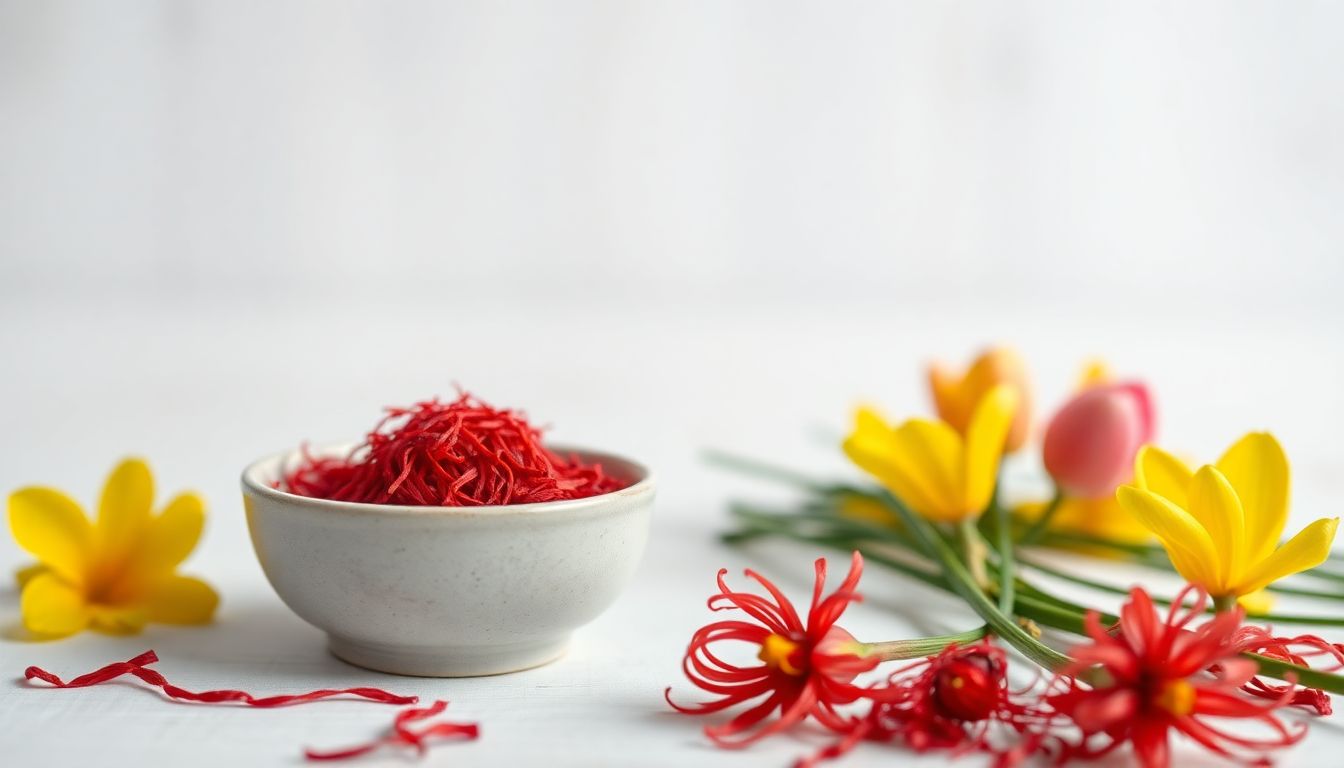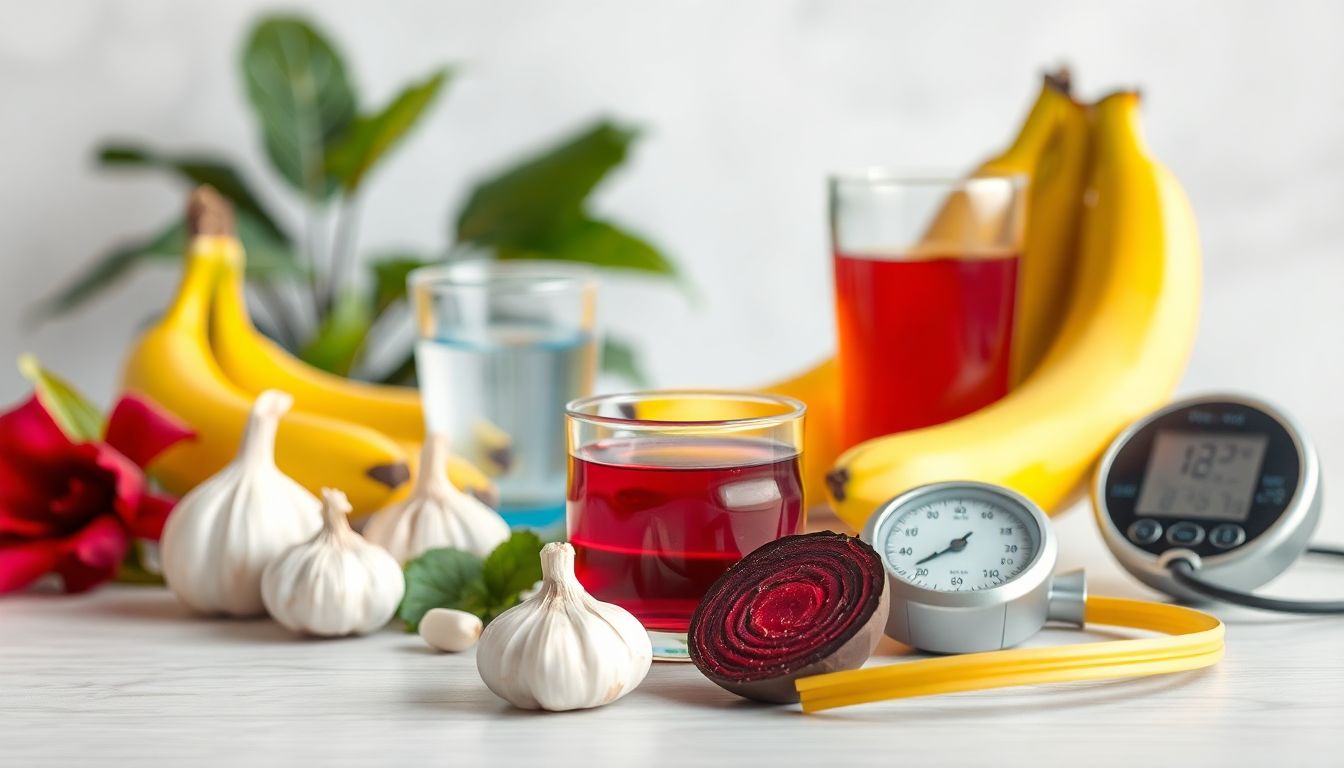🩺 Introduction
For centuries, saffron has been prized as both a spice and a medicine — known in ancient Persia and Greece as “red gold.”
Today, modern research confirms that saffron’s vivid threads don’t just add color to food — they also help support blood pressure, circulation, and heart health naturally.
In this article, we’ll explore how saffron works in the body, what the science says, and the best ways to include this precious spice in your diet or supplement plan.
(Related Reading: The Complete Guide to Lowering Blood Pressure Naturally)
🌼 What Is Saffron?
Saffron comes from the stigma of the Crocus sativus flower — a delicate bloom that must be hand-harvested, making it one of the world’s most valuable natural ingredients.
Its power lies in three key bioactive compounds:
- Crocin – antioxidant that supports blood vessels
- Safranal – improves mood and reduces stress hormones
- Crocetin – promotes oxygen transport and healthy circulation
Together, they create a potent blend of anti-inflammatory and cardiovascular-protective properties.
❤️ How Saffron Supports Healthy Blood Pressure
Saffron’s heart-protective effects come from multiple synergistic actions:
- Improves Endothelial Function
Saffron enhances nitric oxide production — allowing blood vessels to relax and widen. - Reduces Oxidative Stress
Its antioxidants neutralize free radicals that cause arterial stiffness. - Supports Healthy Circulation
Saffron improves oxygen delivery to tissues, reducing heart strain. - Balances Mood and Stress
Chronic stress raises cortisol and blood pressure; safranal helps calm the nervous system naturally.
💡 Science says:
A 2016 study in the Journal of Complementary and Integrative Medicine found that participants taking saffron extract for eight weeks experienced significant reductions in both systolic and diastolic blood pressure, along with improved mood and antioxidant status.
(Also read: Best Natural Supplements to Lower Blood Pressure)
🧠 The Mind–Heart Connection
Saffron is one of the few natural remedies proven to improve both mental and cardiovascular health simultaneously.
By boosting serotonin levels and calming stress hormones, it indirectly helps prevent tension-related spikes in blood pressure.
This makes saffron an ideal herb for people whose hypertension is linked to anxiety, emotional fatigue, or chronic stress.
(Also read: How Stress Affects Blood Pressure (and Natural Remedies That Work))
💊 Saffron in Supplements (BP Zone® Example)
Saffron is the key botanical in BP Zone® by Zenith Labs — a doctor-formulated supplement that combines saffron with other heart-healthy ingredients like:
- Garlic bulb extract
- Hibiscus flower
- Black cumin seed
- CoQ10 and magnesium
This synergistic blend amplifies saffron’s circulatory and antioxidant effects while promoting long-term blood pressure balance.
(Also read: BP Zone Review: Benefits, Ingredients, and Results)
🍽️ Best Ways to Use Saffron
1. As a Tea or Infusion
Steep a few saffron threads in hot water for 10 minutes. Add honey and lemon for extra flavor.
2. In Food
Add to rice, soups, or milk for color and aroma — a pinch goes a long way.
3. In Supplement Form
Standardized saffron extracts (30–60 mg/day) provide consistent potency without the high culinary cost.
⚠️ Safety and Side Effects
Saffron is generally safe in culinary amounts and moderate supplemental doses.
However:
- Avoid doses above 1,200 mg/day — can cause nausea or dizziness.
- Consult your doctor if you take antidepressants, blood pressure, or heart medications.
- Not recommended during pregnancy in high amounts.
(Also read: Is It Safe to Take Blood Pressure Supplements with Medication?)
🌿 Pairing Saffron with Other Heart-Healthy Herbs
Saffron works synergistically with:
- Garlic: vasodilator that enhances nitric oxide
- Hawthorn: strengthens vessel walls
- Hibiscus: natural ACE inhibitor
- CoQ10: boosts cellular energy in heart tissue
- Magnesium: helps maintain vascular tone
(Also read: Garlic for Blood Pressure: Nature’s Natural Vasodilator)
🕒 How Long It Takes to See Results
Most people notice calmer mood and improved energy within 1–2 weeks, and measurable improvements in blood pressure within 4–8 weeks of consistent use.
(Learn more: How Long Do Natural Remedies Take to Lower Blood Pressure?)
❓ FAQs — Saffron and Blood Pressure
- Can saffron really lower blood pressure?
Yes — research supports its ability to improve circulation and relax arteries. - How much saffron should I take daily?
Around 30–60 mg of standardized extract, or a few threads in tea or food. - Is saffron safe with medication?
Generally yes, but check with your doctor if you use heart or mood drugs. - Can saffron boost mood as well?
Yes — it supports serotonin balance and emotional well-being. - Does saffron help cholesterol too?
Studies show it can lower LDL and triglycerides slightly. - When should I take saffron supplements?
Morning or midday with meals for best absorption. - Can I combine saffron with garlic or hibiscus?
Yes — they work synergistically for cardiovascular health. - Are there side effects?
Rare — mild nausea or dizziness in high doses. - How long before I see results?
Usually within 4–8 weeks of consistent use. - Why is saffron called the “golden spice”?
Because of its vivid color, rarity, and wide-ranging healing properties.
❤️ Final Thoughts
Saffron is far more than a luxurious spice — it’s a scientifically backed herb that supports heart, mood, and circulation.
By reducing stress, relaxing arteries, and protecting against oxidative damage, saffron can play a powerful role in any natural blood-pressure regimen.
Enjoy it as a daily tea, culinary spice, or part of a quality supplement like BP Zone® — the golden spice may just help you rediscover balance from the inside out.
(Also read: The Complete Guide to Lowering Blood Pressure Naturally)








